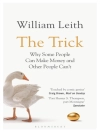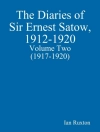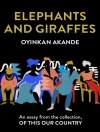In ‘Ideala, ‘ Sarah Grand explores the complexities of women’s roles in Victorian society through the lens of her protagonist, an ambitious woman grappling with the constraints imposed by gender and societal expectations. Grand’s literary style is characterized by its rich narrative, intricate character development, and a blend of realism with elements of the emerging New Woman movement. This compelling novel captures the tension between personal desire and societal duty, challenging the conventions of its time while providing a critique of the gender norms governing 19th-century England. Sarah Grand, a prominent figure in the early feminist literary movement, was propelled to write ‘Ideala’ by her own experiences and activism for women’s rights. As a contemporary of celebrated authors like George Eliot and Thomas Hardy, Grand engaged deeply with the issues of her day, advocating for greater autonomy and self-determination for women. Her personal struggles with societal expectations and her commitment to raising awareness about women’s issues strongly influenced her narrative voice in this work. ‘Ideala’ is a must-read for anyone interested in feminist literature, Victorian studies, or the evolution of gender roles. Grand’s insightful portrayal of her characters and their poignant journeys invites readers to reflect on the enduring relevance of these themes. This novel serves as both a historical document and a timeless exploration of the fight for women’s independence.
About the author
Sarah Grand (1854–1943) was an influential feminist writer and social commentator of the late nineteenth and early twentieth centuries. Born Frances Elizabeth Bellenden Clarke in Donaghadee, Ireland, she later adopted the pen name Sarah Grand, under which her literary career flourished. Grand’s work often tackled themes of women’s independence and the evolving role of women in society, which was radical for its time and contributed to the New Woman movement. Her poignant novel ‘Ideala’ (1888) is arguably one of her most significant contributions to literature, which followed the life and philosophical musings of its eponymous heroine, exploring the complexities of female identity and autonomy within the confines of Victorian society. Grand’s literary style is characterized by its incisive critique of traditional gender roles and its unwavering advocacy for women’s rights—a narrative voice that earned her both acclaim and criticism in her day. Her work stands as an early and powerful example of feminist literature, aiming to inspire women to question societal expectations and assert their own agency. Grand’s legacy persists in the continued relevance of her themes and the recognition of her role in shaping the discourse on gender and equality in her time and beyond.












